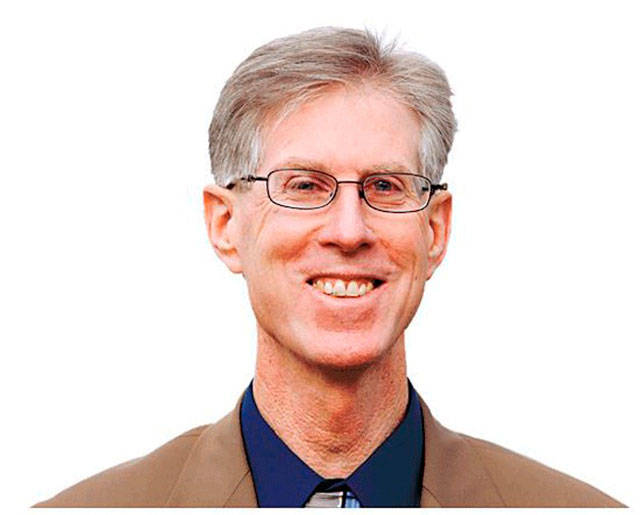OLYMPIA — Democratic lawmakers greeted the end of the 2019 Legislative Session with warm embraces, wide smiles, and for some, irrepressible joy.
There was no visible residual from hours of hand-wringing and death stares between their majority party leaders in the House and Senate preceding the final gavel.
They were in the mood for a celebratory victory lap. And the Inslees — Governor Jay and Mrs. Trudi — joined them for the jaunt minutes after adjournment because the chief executive had a darn fine session too.
In 105 days, Democrats carried out the most enthusiastic expansion of state government in a decade, if not longer, that touches the entire cycle of life, and beyond.
There’s going to be an education program developed for toddlers, expanded opportunities for high school students to learn a trade, a state managed fund for long-term care, and a legal right to be composted upon death. That doesn’t even scratch the surface of the breadth of new laws and expanded services approved this year.
Inslee, surrounded by Democratic legislators at a post-Sine Die news conference early Monday, captured everyone’s sentiment when he said, “There is a time to be humble. This is not one of them.”
But Democrats didn’t run the entire table. Here are five things they didn’t do and may take up next year.
Capital Gains: Progressive Democrats keep trying to tax the rich. And they keep getting foiled by their fiscally moderate friends in the Senate Democratic caucus.
Inslee proposed a capital gains tax in his budget and House Democrats had a version in theirs. Leaders of the Senate clan made clear from Day One they couldn’t muster 25 votes out of their 28-person caucus for the idea. The conversation continued until Day 103 when everyone agreed to tax the profits of big banks instead.
Death Penalty: A pretty safe bet when the session began was that lawmakers would wipe the state’s death penalty statute off the books. The state Supreme Court had found the law unconstitutional. Attorney General Bob Ferguson requested it be erased and Inslee backed the idea. But this wager turned out to be a loser.
In February, the Senate passed a bill eliminating it. But the House never acted though supporters insist they had the votes to pass it. House Speaker Frank Chopp reportedly bottled it up. A political pragmatist, Chopp may have calculated it could cause more harm than help to Democratic candidates. But Chopp won’t be speaker in 2020 and this bill will still be around. It may be worth placing another bet.
Plastic Bags: Another head-scratcher. Cities like Edmonds, Everett and Snohomish are banning single-use plastic bags. QFC is phasing them out too. The trend is toward their extinction yet the majority party could not get a policy to this effect passed. Again, a bill passed the Senate and lapsed in the House.
The Legislature did enact bills aimed at improving recycling and finding a market for products China will no longer buy. But a statewide prohibition on plastic bags, which seemed to be low-hanging fruit in January, proved unreachable in April.
Low Carbon Fuel Standard: This is the most notable piece of climate policy left undone in 2019. Not for lack of trying. House Democrats squeezed through legislation requiring gasoline be produced with a little less concentration of carbon molecules so when it burns it will produce a little less pollution.
Too few Democratic senators backed it. A couple of ones who did support it valiantly cobbled together a last-ditch proposal. It received a hearing on Day 103. Environmentalists and oil industry representatives opposed it. Look for LCFS policy to be a big deal in 2020.
Car Tabs: On the final day of the 2018 session, Democrats in the House and Senate feuded on how to provide vehicle owners some relief to surging costs of car tabs in the Sound Transit taxing district. They failed out of concern of derailing a voter-approved expansion plan for light rail service. Democrats vowed to do something in 2019.
They didn’t succeed this year either. They didn’t come close. Republicans introduced bills to lower the costs or put the expansion plan back on the ballot. But they gained no traction. A Democrat offering for rebates fared no better. Though the cost of car tabs could emerge as an election issue in the future — if enough affected voters have long memories — it is unlikely to be on the top of the Democrats’ agenda anytime soon.
They enjoyed a lot of winning this year without it.
Jerry Cornfield: 360-352-8623; jcornfield@herald net.com. Twitter: @dospueblos.



